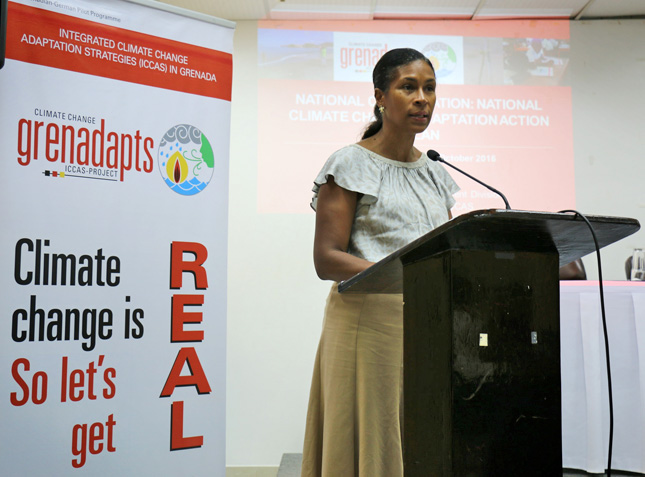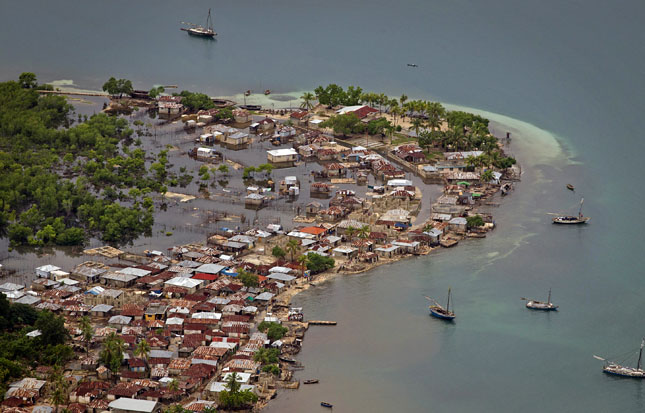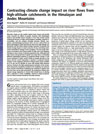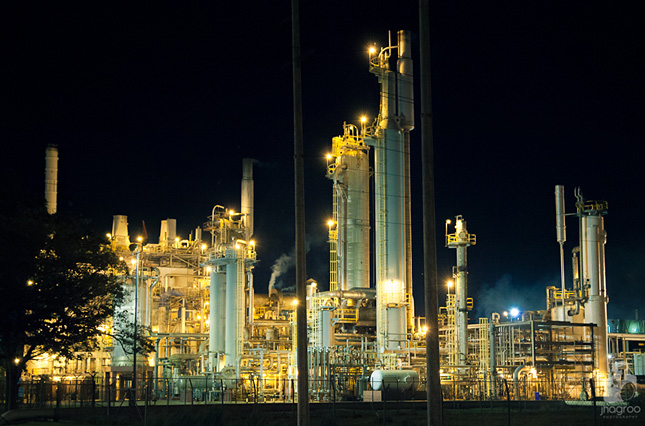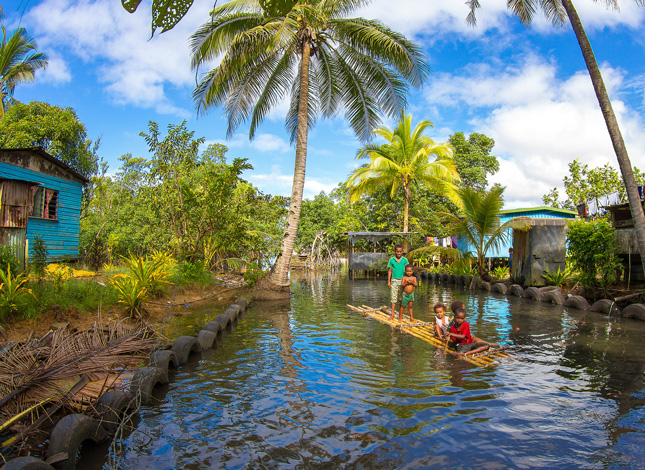-
A Changing Environment Threatens Worker Safety and Productivity
›May 11, 2017 // By Sara Merken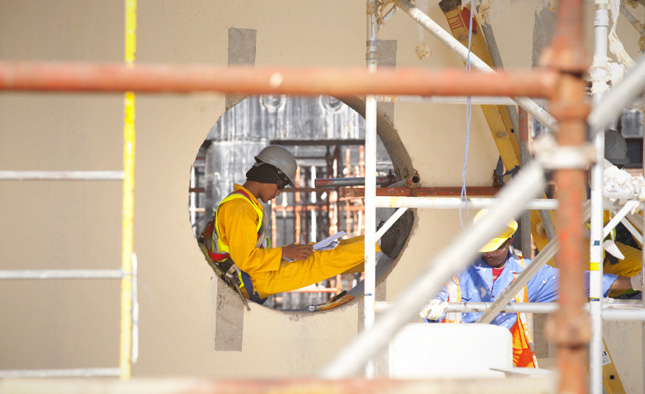
The implications for a warmer climate are many, but perhaps one of the most frequently overlooked is what it could mean for worker safety and productivity in certain sectors of the global economy.
-
Caribbean Governments Huddle to Discuss Climate Adaptation Plans
›As more climate change seems locked in – some estimates suggest a 1.5-degree Celsius (2.5 degree Fahrenheit) rise above pre-Industrial averages is guaranteed – more governments are allocating resources to adaptation. Caribbean communities that contribute very little to climate change are some of the most vulnerable, and representatives from many met in October 2016 in Grenada to share experiences and build technical capacity.
-
Building a Climate-Resilient Caribbean: Grenada Hosts National Adaptation Planning Workshop
›
For island nations already dealing with more frequent and intense extreme weather events, climate change is an imposing burden. But many island states are responding and becoming “incubators of resilience,” as Lynae Bresser recently wrote.
-
Necessity Is the Mother of Invention: Islands as the Vanguard of Climate Adaptation
›
“Climate change is one of the greatest challenges of our time and it calls for a comprehensive and cooperative international approach like we’ve never seen,” said Jainey Bavishi, associate director for climate preparedness at the White House Council on Environmental Policy, at the Wilson Center on October 5. “The leadership of the island nations is essential; they punch well above their weight on this issue.”
-
The Unpredictability of Climate Impacts on River Flows, and the Need for Disaster Aid Reform
› A study published in PNAS highlights the unpredictability of the impacts of climate change on water resources by comparing detailed simulations in mountain areas of Chile and Nepal. Authors Silvan Ragettli, Walter W. Immerzeel, and Francesca Pellicciotti study the response of river flows to a significant decline in glacier areas in the Juncal catchment of Chile and the Langtang catchment of Nepal at higher spatiotemporal resolutions than any previous study.
A study published in PNAS highlights the unpredictability of the impacts of climate change on water resources by comparing detailed simulations in mountain areas of Chile and Nepal. Authors Silvan Ragettli, Walter W. Immerzeel, and Francesca Pellicciotti study the response of river flows to a significant decline in glacier areas in the Juncal catchment of Chile and the Langtang catchment of Nepal at higher spatiotemporal resolutions than any previous study. -
The Case for a Caribbean Carbon Market
›
In an effort to scale-up climate change mitigation, the largest private sector engagement in the history of the United Nations was drafted to fund clean technology projects in developing countries. Carbon credits were to offset pollution in developed nations and pay for clean energy projects in developing countries. But many developed countries, including the United States, spurned the agreement, preferring to manage greenhouse gas emissions internally and build or retrofit infrastructure in ways that directly benefited their economies. The ambitions of the Kyoto Protocol, which went into effect in 2005, were subsequently stranded and then scrapped.
-
Corruption, Climate Change, and Vulnerability in Small-Island States
›
As international funding to support environmental management and development increases, the danger of associated corruption grows and requires greater attention. Small-island developing states (SIDS), greatly exposed to the damage caused by climate change, are particularly vulnerable. These small, trailblazing countries in the Pacific, Caribbean, and Indian Ocean are making progress in addressing climate threats, but will need international support and local commitment regarding rule of law and corruption in the climate sector as they try to prevent the worst effects of climate change and find a sustainable way to develop.
-
The Future of the Sustainable Development Goals
›
“As we go forward, we will discover that 2015 was when we really started getting serious about transdisciplinary challenges inherent in sustainable development,” said Melinda Kimble, senior vice president for programs at the UN Foundation, at the Wilson Center on April 13. [Video Below]
Showing posts from category Caribbean.


